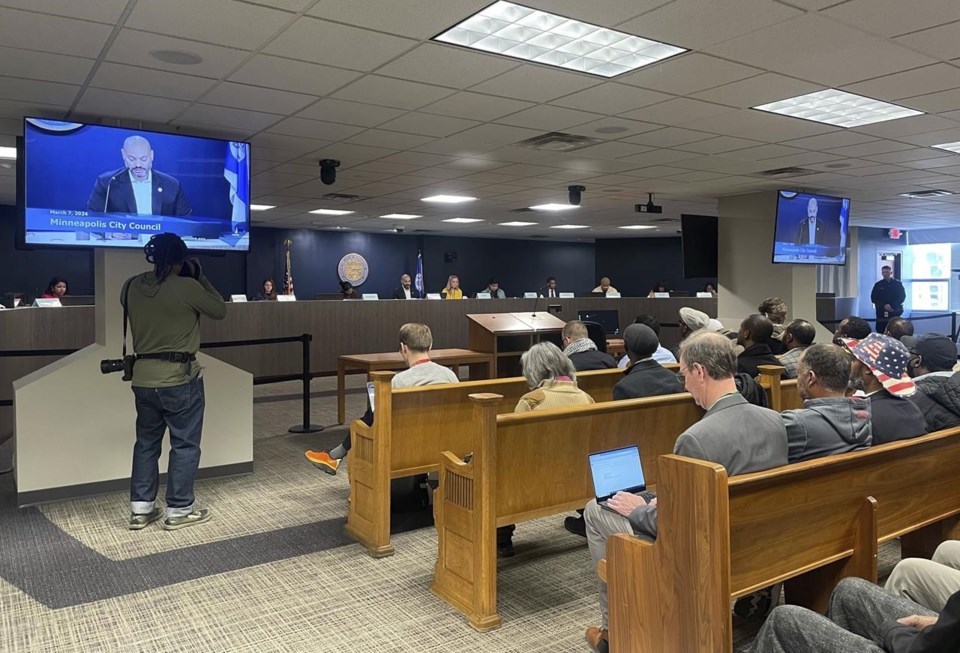MINNEAPOLIS (AP) ŌĆö The Minneapolis City Council passed a measure Thursday that would increase wages for drivers of ride-hailing services to an equivalent of more than $15 an hour ŌĆö which opponents say may increase costs to customers and fears that Uber and Lyft will follow through on their threats to leave the area altogether.
Council members passed the measure in a 9-4 vote despite Mayor Jacob Frey's promise to veto the measure due to concerns that the ride-hailing companies could leave Minneapolis and even stop operating throughout Minnesota. If the mayor vetoes the measure, the council could override his action if they have support from at least nine members.
Uber and Lyft have threatened to leave if the measure is approved, but council member Jamal Osman voted for the proposal, saying the fear of their departure ŌĆ£does not make it OKŌĆØ for companies to rely on drivers ŌĆö often people of color and immigrants in the Minneapolis area ŌĆö for cheap labor.
Council member Michael Rainville voted against the measure.
ŌĆ£Minneapolis is not an island," Rainville said, noting that ride-hailing customers often travel between Minneapolis and other parts of the state.
Ride costs may spike for everyone, including people with low incomes and people with disabilities who rely on ride-hailing services to get around, he added.
Many of the drivers in Minneapolis are African immigrants who have been pushing for higher wages at the state and city levels since 2022.
ŌĆ£We have been waiting for this for a long time. Almost two years,ŌĆØ said Ahmed Ahmed, one of the dozens of ride-hailing drivers who attended the meeting to see the vote and celebrate when the measure passed.
The measure requires ride-hailing companies to pay each driver at least $1.40 per mile and $0.51 per minute for the time spent transporting a rider ŌĆö or $5 per ride, whichever is greater ŌĆö excluding tips. This only applies to the portion of the ride within the city.
The formula intends to ensure drivers are paid the Minneapolis minimum wage equivalent of $15.57 an hour. It would take effect on May 1.
Lyft spokesperson CJ Macklin said in an email after the vote that if this measure becomes law, ŌĆ£it will force Lyft to cease operationsŌĆØ in the city on May 1.
ŌĆ£We support a minimum earnings standard for drivers, but it must be done in a way that allows the service to sustainably and affordably operate for riders,ŌĆØ the company said in a statement.
Uber did not immediately respond to a request for comment from The Associated Press.
Seattle and New York City have passed similar policies in recent years that increase wages for ride-hailing drivers. Uber and Lyft still operate in those cities.
The Minneapolis City Council last year, but the mayor vetoed it. Council members did not have enough votes to override his veto.
___
Trisha Ahmed is a corps member for the Associated Press/Report for America Statehouse News Initiative. is a nonprofit national service program that places journalists in local newsrooms to report on under-covered issues. Follow her on X, formerly Twitter:
Trisha Ahmed, The Associated Press


